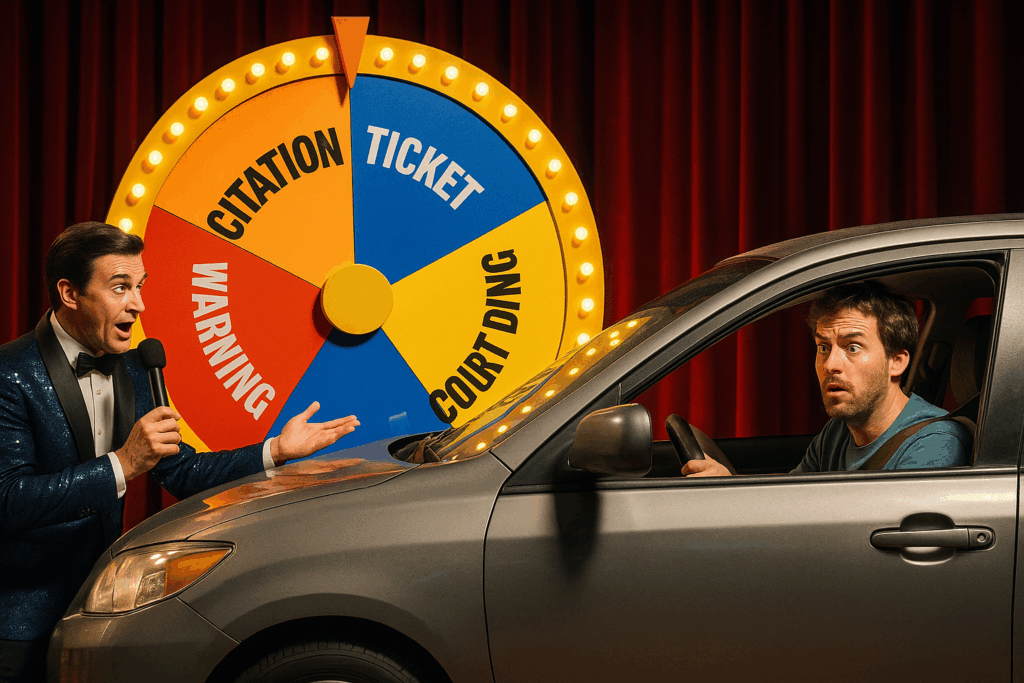Citation vs. Ticket: What’s the Difference?

Seeing flashing lights in your rearview mirror is never a good feeling, especially when it’s followed by a notice of a traffic violation. But is the document you receive a citation or a ticket? These terms are often used interchangeably, leaving many drivers confused.
Understanding the distinction between a citation and a ticket, as well as their implications, can help you navigate the consequences more effectively. Here’s a detailed breakdown of the topic, Citation vs. Ticket: What’s the Difference, and what you need to know.

What’s Difference Between a Citation and a Ticket?
A citation and a ticket essentially mean the same thing: a formal notice that you’ve violated a traffic law. The term “citation” is the official legal term used in courts and by law enforcement, while “ticket” is a more casual expression often used by drivers.
Although they refer to the same document, understanding the legal implications of a citation versus a ticket can help you respond appropriately to traffic violations.
Types of Citations
Citations come in various forms, typically categorized into moving violations and nonmoving violations. Here’s what sets them apart:
Moving Violations
Moving violations occur while the vehicle is in motion and are considered more serious. They can result in fines, points on your driving record, and even increased insurance rates. Examples include:
- Running a stop sign
- Speeding
- Unsafe lane changes
- Running a red light
Nonmoving Violations
Nonmoving violations occur when the car isn’t in motion. While these are generally less severe, they can still come with fines. Common nonmoving violations include:
- Illegal parking
- Expired vehicle registration
- Equipment violations, like a broken taillight
Warning Tickets: A Third Type of Citation
In some cases, you might receive a warning ticket instead of a formal citation. These warnings are intended to alert you to correct a behavior without imposing fines or penalties. For instance, an officer might issue a warning for a minor infraction like a rolling stop at a stop sign.
What to Do When You Get a Citation or Ticket
If you receive a citation, here’s how to handle it effectively:
Pay the Fine
For minor infractions, you can admit guilt and pay the fine. However, this could affect your driving record and potentially increase your insurance premiums.
Contest the Citation
If you believe the citation was issued in error, you have the option to contest it in traffic court. Be prepared to present evidence, such as photos, witness statements, or other records, to support your case.
Appear in Court if Required
Some citations require a mandatory court appearance, especially for serious violations like reckless driving or DUI. In these cases, consulting with an attorney is highly recommended.
Does a Citation or Ticket Affect Your Car Insurance?
The impact of a citation on your car insurance largely depends on the type and severity of the violation. Here’s what to consider:
- Moving Violations: These are more likely to increase your insurance rates. Speeding, for example, can lead to significant premium hikes depending on how far over the speed limit you were driving.
- Nonmoving Violations: These generally don’t affect insurance rates since they don’t indicate risky driving behavior.
- Repeat Offenses: Multiple citations within a short time frame can make you a high-risk driver, leading to even higher premiums.
How to Lower Car Insurance Costs After a Ticket
Receiving a ticket doesn’t have to lead to long-term financial strain. Here are some steps to mitigate the impact:
Take a Defensive Driving Course
Many states allow drivers to remove points from their records or reduce fines by completing a defensive driving course. While this may not always lower your insurance rates, it’s worth exploring.
Adjust Your Coverage
Consider raising your deductible or reducing optional coverages to offset the higher premium. Be cautious, though, as this could increase your out-of-pocket costs if you file a claim.
Shop for Better Rates
If your current insurer raises your premiums significantly, compare quotes from other companies. Some insurers may offer competitive rates even with a ticket on your record.
Avoid Future Violations
Driving safely and avoiding additional citations can help you maintain a clean record, eventually leading to lower insurance rates.
The Bottom Line
Understanding the difference between a citation and a ticket, as well as their implications, is essential for managing the consequences effectively. Whether you’ve received a moving violation or a warning, knowing how to respond can save you money and hassle in the long run.
Although a ticket may result in higher insurance premiums, the impact typically lasts only a few years. In the meantime, you can explore ways to minimize costs, such as taking a defensive driving course, adjusting your coverage, or comparing rates from different insurers. By taking proactive steps, you can navigate the challenges of Citation vs. Ticket: What’s the Difference, and keep your financial health on track.
If you ever need expert assistance or guidance on your credit journey, don’t hesitate to reach out to the Nerds! Additionally, stay updated with the latest tips and information by following us on Facebook, Instagram and TikTok!

